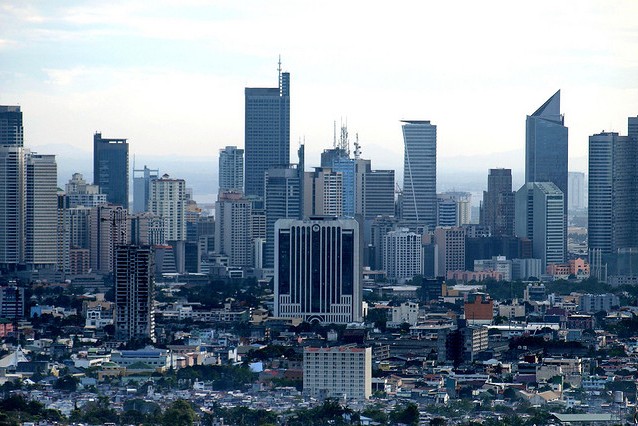ADB retains 6.5% Philippine growth outlook
MANILA, Philippines — The Asian Development Bank (ADB) has retained its growth forecast for the Philippines at 6.5 percent this year on the back of robust domestic demand, increased public investments in infrastructure and social services and positive business sentiment.
In an update to its Asian Development Outlook (ADO) 2017, the Manila-based multilateral development bank also maintained its 6.7 percent growth outlook for the country in 2018.
ADB country director Richard Bolt said the government’s strong investment focus on infrastructure and social programs as well as the implementation of the first package of the tax reform program will sustain the growth momentum through 2018.
Buoyant consumer and business sentiments also indicate continued strength in domestic consumption, he said.
The first package of tax reform, which would likely be approved this year, provides for the lowering of personal income tax rate which would boost domestic demand. Offsetting measures include increases in excise tax for automobiles and gasoline, and broadening the value-added tax base by limiting exemptions.
“Upbeat consumer and business sentiments signify robust consumption and investment will continue,” Bolt said in briefing at the ADB headquarters yesterday. “With coordinated fiscal and monetary policy, flexible exchanges rate, stable remittances and improving exports, the economy is likely to be resilient to external shocks.”
The domestic economy expanded 6.4 percent in the first half of 2017, moderating from seven percent in the same period last year.
Services, the largest sector of the economy, grew 6.4 percent in the first semester, led by business process outsourcing, trade, tourism and finance.
Manufacturing grew 7.7. percent on strong domestic consumption and improvement in exports.
Meanwhile, inflation climbed to 3.1 percent in the first eight months of the year, faster than 2.5 percent last year but remains within the central bank’s target range of two to four percent.
Bolt stressed that the passage of the Tax reform for Acceleration and Inclusion (TRAIN) will provide a stimulus for the economy and help fund the government’s ambitious infrastructure development program seen to cost $160 billion to $190 billion.
“The tax reform will be a fiscal stimulus for the Philippine economy. The program will lift the purchasing power of households and provide additional revenues for for the government to invest in infrastructure,” he said.
The domestic economy, however, is still threatened by financial market volatility brought about chiefly by the normalization of monetary policy in the US and the uncertainty in the trade policies of major trade partners.
Other challenges include the timely passage of TRAIN and the need to improve the capacity of line agencies implementing key infra projects.
ADB likewise retained its growth projection of 5.9 percent for developing Asia in 2017 and 5.8 percent in 2018 on the back of broad-based recovery in global trade, robust expansion in major industrial economies, and improved prospects for China.
The report said countries in developing Asia should take advantage of favorable short term economic prospects to implement policy-enhancing reforms, invest in badly-needed infrastructure and maintain sound macroeconomic management.
ADB urged countries in developing Asia to leverage private capital and technical expertise through public-private partnerships (PPP).
Source: http://www.philstar.com/business/2017/09/27/1742888/adb-retains-6.5-philippine-growth-outlook


 Thailand
Thailand




